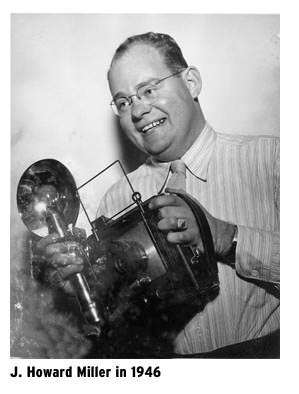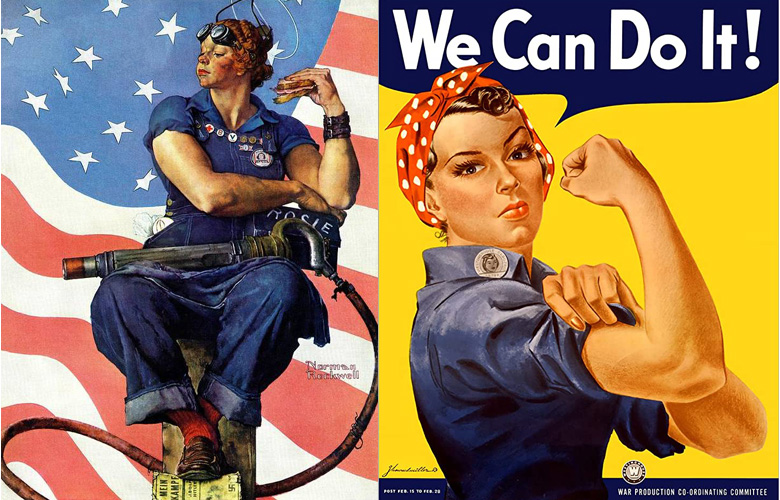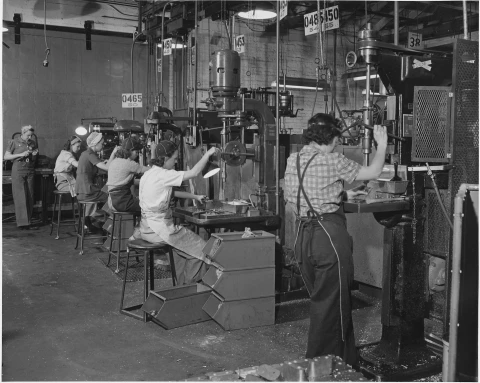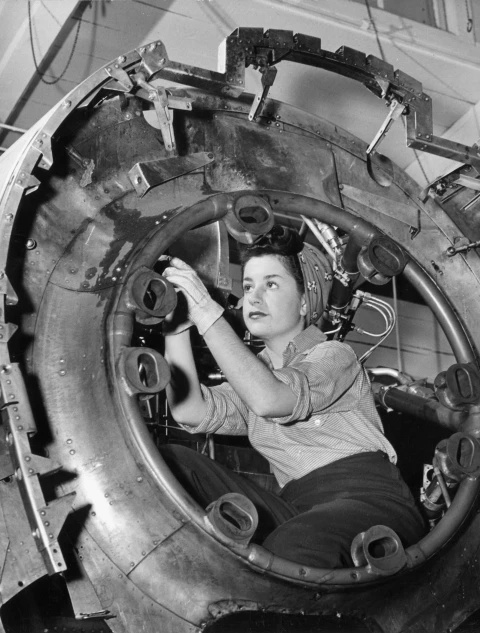Rosie the Riveter Day is a day of recognition for the millions of women who entered the workforce during World War II and played a vital role in the war effort and long after. The day is celebrated on March 21st, which was declared Rosie the Riveter Day by the US Congress in 2017. The day is an opportunity to celebrate the legacy of Rosie the Riveter and to recognize the contributions that women made to the war effort.
Rosie the Riveter Day is an important day of recognition because it highlights the contributions of women during a time when their efforts were often overlooked. During World War II, women were encouraged to enter the workforce to fill the gaps left by men who were serving in the military. Women worked in factories, shipyards, and other industries, often under difficult conditions and for long hours. Their efforts were essential to the war effort, but their contributions were often minimized or ignored.
Rosie the Riveter is an iconic cultural symbol that emerged in the United States during World War II. She represented the millions of women who entered the workforce during the war, filling jobs traditionally held by men. Rosie was a cultural phenomenon, and her image graced posters, magazines, and other media during the war. Her legacy has endured for decades, as she has become a symbol of women’s empowerment and an inspiration for generations of women.
 Rosie’s name comes from a popular song of the same name that was released in 1942. The song was written by Redd Evans and John Jacob Loeb and was inspired by a real-life character named Rosalind P. Walter (she died on March 4th, 2020) who worked at a factory in Connecticut during the war. Walter became known as “Rosie the Riveter” because she riveted aircraft parts together at the factory where she worked. The song, which was performed by various artists, including the famous big band singer Kay Kyser, became an instant hit and helped to popularize the image of Rosie.
Rosie’s name comes from a popular song of the same name that was released in 1942. The song was written by Redd Evans and John Jacob Loeb and was inspired by a real-life character named Rosalind P. Walter (she died on March 4th, 2020) who worked at a factory in Connecticut during the war. Walter became known as “Rosie the Riveter” because she riveted aircraft parts together at the factory where she worked. The song, which was performed by various artists, including the famous big band singer Kay Kyser, became an instant hit and helped to popularize the image of Rosie.
 The iconic image of Rosie the Riveter was created by J. Howard Miller, an artist working for the Westinghouse Electric Corporation. The image features a woman with a red bandana around her head, flexing her bicep and declaring, “We Can Do It!” The image was used on a poster to promote worker morale at Westinghouse, but it soon became a cultural phenomenon. The image was widely reproduced and appeared on posters, magazines, and even a US postage stamp.
The iconic image of Rosie the Riveter was created by J. Howard Miller, an artist working for the Westinghouse Electric Corporation. The image features a woman with a red bandana around her head, flexing her bicep and declaring, “We Can Do It!” The image was used on a poster to promote worker morale at Westinghouse, but it soon became a cultural phenomenon. The image was widely reproduced and appeared on posters, magazines, and even a US postage stamp.
Rosie the Riveter became a symbol of women’s empowerment and was instrumental in changing attitudes toward women in the workforce. Before the war, women were often discouraged from pursuing careers outside of the home. However, the war created a labor shortage, and women were encouraged to fill the gap. This led to an unprecedented number of women entering the workforce, and many of them discovered new skills and abilities that they never knew they had.
After the war, Rosie the Riveter became a symbol of women’s liberation and equality. The image of a strong, confident woman who could do anything that a man could do was a powerful one, and it inspired generations of women to pursue their dreams and break down barriers. Rosie the Riveter has become an enduring cultural icon, and her image continues to inspire women today.
Celebrating Rosie the Riveter Day is a way to honor the legacy of these women and to recognize their contributions to the war effort. It is also an opportunity to reflect on the progress that has been made in the fight for gender equality and to recognize that there is still much work to be done. Rosie the Riveter Day serves as a reminder that women have the strength, resilience, and determination to achieve anything they set their minds to.






